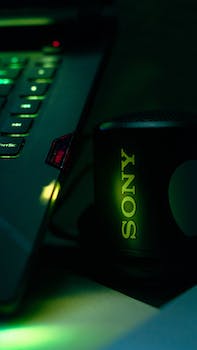-
Table of Contents
Unleashing the Power of AI: Revolutionizing Voice Acting
Introduction
Artificial Intelligence (AI) has made significant advancements in recent years, revolutionizing various industries. One area where AI has shown immense potential is in replacing voice actors. With the ability to generate human-like voices and mimic different accents, tones, and emotions, AI technology has the capability to transform the voice acting industry. In this article, we will explore the potential of AI in replacing voice actors and the implications it may have on the entertainment and media sectors.
The Impact of AI on the Voice Acting Industry
The Impact of AI on the Voice Acting Industry
Artificial Intelligence (AI) has been making significant strides in various industries, and the voice acting industry is no exception. With advancements in AI technology, there is a growing potential for AI to replace human voice actors. This development raises questions about the future of voice acting and the implications it may have on the industry.
One of the main advantages of using AI in voice acting is the ability to generate realistic and natural-sounding voices. AI algorithms can analyze vast amounts of audio data and mimic human speech patterns, intonations, and emotions. This opens up new possibilities for creating unique and diverse voices for characters in movies, video games, and other forms of media.
Furthermore, AI-powered voice acting can offer cost-effective solutions for production companies. Hiring human voice actors can be expensive, especially for projects that require multiple characters or languages. AI eliminates the need for casting, recording sessions, and negotiations, reducing both time and financial investments. This cost-effectiveness can make voice acting more accessible to smaller production companies and independent creators.
However, the potential of AI in replacing voice actors also raises concerns within the industry. Many voice actors fear that their livelihoods may be at risk as AI technology becomes more sophisticated. The human touch and emotional depth that voice actors bring to their performances cannot be replicated by AI. There is a concern that AI-generated voices may lack the nuances and subtleties that make human performances so captivating.
Moreover, the use of AI in voice acting raises ethical questions. If AI can convincingly imitate a human voice, should it be allowed to do so without disclosing its non-human origin? This raises concerns about transparency and the potential for AI-generated voices to deceive audiences. Additionally, there are concerns about the ownership and copyright of AI-generated voices. Who owns the rights to a voice created by an AI algorithm?
Despite these concerns, there are also opportunities for collaboration between AI and human voice actors. AI can assist voice actors by providing them with tools to enhance their performances. For example, AI algorithms can analyze a voice actor’s performance and provide feedback on areas that need improvement, such as pronunciation or emotional delivery. This collaboration between AI and human voice actors can lead to more refined and compelling performances.
Furthermore, AI can also help voice actors by automating repetitive tasks, such as dubbing or localization. AI algorithms can quickly translate and adapt scripts into different languages, saving time and effort for voice actors. This automation can free up voice actors to focus on the creative aspects of their work, allowing them to deliver even better performances.
In conclusion, AI has the potential to revolutionize the voice acting industry. While there are concerns about the impact of AI on human voice actors, there are also opportunities for collaboration and enhancement. AI can provide cost-effective solutions, generate diverse voices, and assist voice actors in improving their performances. However, ethical considerations and the need for transparency must be addressed as AI becomes more prevalent in the industry. Ultimately, the future of voice acting lies in finding a balance between the capabilities of AI and the unique talents of human voice actors.
How AI Technology is Revolutionizing Voiceover Services

The Potential of AI in Replacing Voice Actors
In recent years, artificial intelligence (AI) technology has made significant advancements, revolutionizing various industries. One area where AI is making a significant impact is in voiceover services. Traditionally, voice actors have been the go-to professionals for providing voices for animated characters, commercials, video games, and more. However, with the rapid development of AI, there is now a potential for AI to replace voice actors altogether.
One of the main advantages of using AI in voiceover services is the ability to generate human-like voices. AI algorithms can analyze and mimic the nuances of human speech, including intonation, accent, and emotion. This means that AI-generated voices can sound remarkably similar to real human voices, making it difficult to distinguish between the two. This breakthrough in AI technology has opened up new possibilities for voiceover services, as AI can now provide a wide range of voices without the need for human actors.
Another advantage of using AI in voiceover services is the speed and efficiency it offers. AI algorithms can process vast amounts of data and generate voice recordings in a fraction of the time it would take a human voice actor. This means that projects that would typically take weeks or even months to complete can now be done in a matter of days. This increased efficiency not only saves time but also reduces costs for businesses and clients.
Furthermore, AI technology allows for greater flexibility in voiceover services. With AI, it is possible to modify and customize voices to suit specific requirements. For example, if a client needs a voiceover in a different language or with a specific accent, AI can easily adapt to these needs. This flexibility opens up new opportunities for businesses to reach a global audience and cater to diverse markets.
However, while AI technology has the potential to revolutionize voiceover services, it is important to consider the limitations and ethical implications. One concern is the potential loss of jobs for voice actors. As AI becomes more advanced, there is a possibility that human voice actors may be replaced by AI-generated voices, leading to unemployment in the industry. This raises questions about the ethical implications of using AI to replace human workers.
Additionally, although AI-generated voices can sound remarkably human-like, there are still instances where they may fall short. AI may struggle to accurately convey complex emotions or deliver nuanced performances that human actors excel at. This limitation may impact the quality and authenticity of voiceover services, particularly in projects that require a high level of emotional depth or character development.
In conclusion, AI technology has the potential to revolutionize voiceover services by providing human-like voices, increasing efficiency, and offering greater flexibility. However, it is important to consider the ethical implications and limitations of using AI in this field. While AI can offer significant benefits, it is crucial to strike a balance between the advantages of AI and the value that human voice actors bring to the industry. Ultimately, the future of voiceover services may lie in a combination of AI and human talent, where AI enhances and complements the skills of voice actors rather than replacing them entirely.
Exploring the Future of Voice Actors in an AI-dominated World
The Potential of AI in Replacing Voice Actors
Exploring the Future of Voice Actors in an AI-dominated World
In recent years, artificial intelligence (AI) has made significant advancements in various industries, revolutionizing the way we live and work. One area that has seen a significant impact is the field of voice acting. With the development of AI-powered voice synthesis technology, there is a growing debate about the potential of AI in replacing human voice actors.
AI voice synthesis technology has come a long way since its inception. Initially, AI-generated voices lacked the naturalness and emotional depth that human voice actors bring to their performances. However, with advancements in machine learning and deep neural networks, AI-generated voices have become increasingly realistic and indistinguishable from human voices.
One of the main advantages of using AI in voice acting is the ability to create voices that are consistent and customizable. Unlike human voice actors, AI can produce the same voice over and over again without any variations in tone or delivery. This consistency can be particularly useful in industries such as animation and gaming, where characters often need to deliver lines repeatedly.
Furthermore, AI voice synthesis technology allows for easy customization. With a few adjustments to the AI model, it is possible to change the age, gender, accent, or even the emotional tone of a voice. This flexibility opens up new possibilities for creative expression and allows for greater diversity in voice acting.
Another advantage of AI in voice acting is the potential for cost savings. Hiring human voice actors can be expensive, especially for large-scale projects that require multiple voices. AI, on the other hand, can generate voices at a fraction of the cost, making it an attractive option for budget-conscious productions.
However, despite these advantages, there are concerns about the impact of AI on the voice acting industry. Many voice actors fear that AI will replace them entirely, leading to job losses and a decline in the quality of voice performances. While it is true that AI can mimic human voices, it still lacks the creativity, intuition, and emotional depth that human voice actors bring to their work.
Moreover, the human element in voice acting is crucial for creating a connection with the audience. Human voice actors can convey subtle nuances and emotions that AI may struggle to replicate. The ability to interpret a script, understand the context, and deliver a performance that resonates with the audience is a skill that is unique to human voice actors.
It is also worth noting that AI-generated voices are not without limitations. While they have improved significantly, there are still instances where the synthesized voices sound robotic or unnatural. This can be a drawback in industries where authenticity and believability are paramount, such as film and television.
In conclusion, AI has the potential to revolutionize the voice acting industry. The advancements in AI voice synthesis technology offer new possibilities for customization, consistency, and cost savings. However, it is important to recognize the unique skills and qualities that human voice actors bring to their performances. The human element in voice acting, including creativity, intuition, and emotional depth, cannot be easily replicated by AI. As we explore the future of voice actors in an AI-dominated world, it is crucial to strike a balance between the benefits of AI and the irreplaceable qualities of human voice actors.
Q&A
1. How can AI potentially replace voice actors?
AI can potentially replace voice actors by utilizing text-to-speech technology that can generate human-like voices based on input text.
2. What are the advantages of using AI instead of voice actors?
Using AI instead of voice actors can provide cost savings, faster turnaround times, and the ability to generate voices in multiple languages and accents.
3. Are there any limitations to AI replacing voice actors?
Yes, there are limitations to AI replacing voice actors. AI-generated voices may lack the emotional depth and nuanced performances that human voice actors can provide. Additionally, AI may struggle with accurately conveying certain dialects or unique vocal characteristics.
Conclusion
In conclusion, AI has the potential to replace voice actors in certain applications. With advancements in technology, AI can generate realistic and natural-sounding voices, reducing the need for human voice actors in various industries such as advertising, gaming, and virtual assistants. However, it is important to consider the limitations of AI, such as the inability to convey complex emotions and the potential loss of human connection. While AI can offer efficiency and cost-effectiveness, the role of voice actors in delivering nuanced performances and creating emotional connections with audiences remains invaluable.

